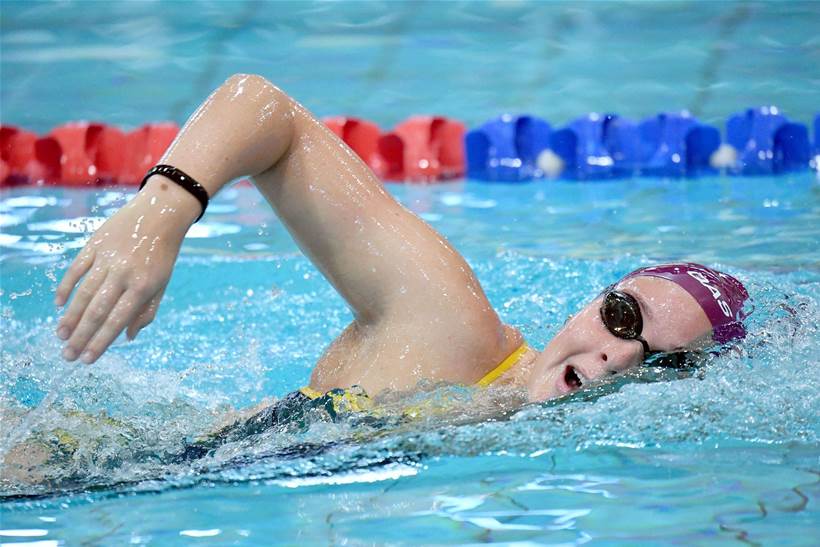The Australian swim team is looking to wearable technology to improve training and recovery programs for its athletes, coaches and staff.
Sports wearable heavyweight Fitbit was recently announced as a partner of the Australian Dolphins Swim Team, providing access to its Surge and Flex 2 products to improve meet preparation going forward.
The partnership was originally created to capture statistics from Fitbit devices in athlete trials and helped the Dolphins prepare for the Rio Olympic and Paralympic Games last year.
During this trial, the athletes wore the fitness trackers as part of their on-land training, allowing coaches to track their exercise, active minutes and sleep quality during training and competition periods.
With the introduction of the Flex 2, Fitbit’s first swim-proof device, the analysis can now extend to the water, with coaches able to analyse in-pool training summaries by reviewing laps, duration and calorie burn.
Swim team members will also be able to use the same device to capture all of their daily activities, allowing their coaches to see the impact that those activities and sleep schedules have on training and performance.
Paralympic program director Adam Pine said: “By tracking the activities of our athletes from one competition to the next, we can actively compare the competition environments and ensure before meets, our swimmers aren’t being too active on-land, are getting enough sleep and rest, and their heart rate levels are staying within expected ranges.”
“By comparing these metrics, our coaches have more information to help them ensure the success of our athletes.”
Shaun Colligan, Fitbit’s regional director for the A/NZ region, told IoT Hub that the on-land heart rate data collected by the wearables was of particular interest to the swim coaches.
Fifty devices were worn by athletes, coaches and support staff in the lead up to the 2015 IPC World Championships in the UK, and a wealth of data was collected to optimise athlete preparation.
“Everyone wearing a device was closely assessed during pre-tour, staging camp, and competition stages of the Championships,” he explained.
“Coaches found the data collected highlighted that the swimmers’ activity was substantially different during daily living periods compared to when swimmers were on tour, recording a slight increase in resting heart rate on arrival into the staging camp.
“As a result, coaches kept track of this metric for each athlete and analysed resting heart rate recovery times and adjusted training programs accordingly.”
A data-driven future for the Dolphins
While the results for the Dolphins at last year’s Olympics and Paralympics were underwhelming by their high standards, it’s clear that both the swimmers and coaching staff see the value in a data-driven approach to athlete management.
Pine told IoT Hub that they will continue to use the wearable technology to monitor training in the lead up to the 2018 Commonwealth Games in the Gold Coast and the 2020 Tokyo Olympics and Paralympics.
“The information that Fitbit devices collect on a daily basis has become important to assess training effectiveness both over short and long-term periods,” he said.
“Swimming events at these competitions are won by hundredths of seconds, so it’s important to prepare our athletes and understand what their daily metrics are.
“We want our athletes standing on the blocks knowing that they have done everything they can to prepare for their best race.”







